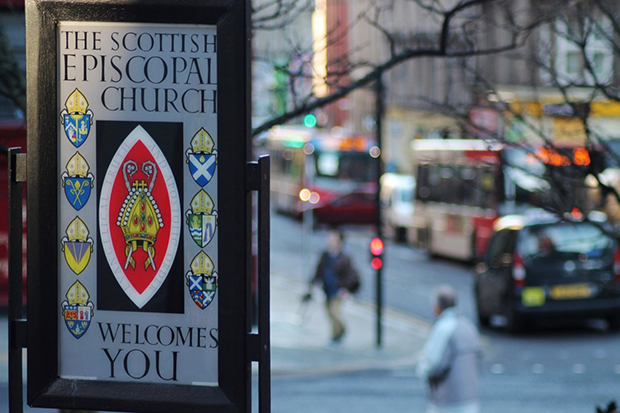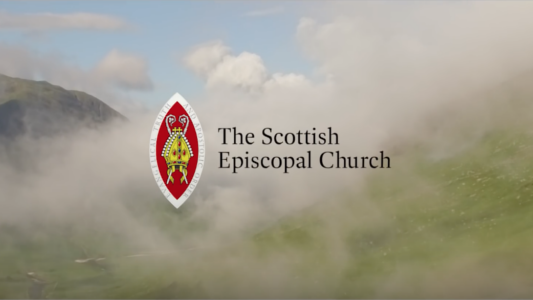Section 1: Introduction
Vestries should be guided principally by:
- the Code of Canons of the Scottish Episcopal Church, particularly Canons 35 & 60
- the Digest of Resolutions of the General Synod
- the Constitution of the Charge
- the Charities and Trustee Investment (Scotland) Act 2005
Vestry Members are normally the “charity trustees” of the charity comprising the Charge and it is important that all individuals holding office in the Church are aware of their responsibilities under the Charities and Trustee Investment (Scotland) Act 2005. As such, vestry members must be eligible to serve as charity trustees and more detailed guidance on this is available from the SEC website. The Office of the Scottish Charity Regulator has also published its own “Guidance for Charity Trustees” which is available from the OSCR website.
New Vestry members will need to sign the appropriate eligibility and Fit and Proper Person Declarations and should make themselves aware of the contents of the Charge Constitution. (Further information is available from SEC website.)
Apart from any legal obligations arising under the matters referred to above, the Church expects Vestries to perform other functions which are included in the information listed below.
1. Normally, the Vestry is elected at the Annual Meeting of the Charge. This includes the election of the Lay Representative and the Alternate Lay Representative. Other office bearers are normally appointed by the Vestry.
2. The Lay Representative, appointed under Canon 63, represents the congregation in the Diocesan Synod. The Alternate Lay Representative acts in the absence of the Lay Representative. Normally, they are elected at the Annual Meeting unless another meeting is called specifically for that purpose.
3. The list of office bearers requiring election or appointment by the Vestry should normally include the Secretary, Treasurer, Paying Officer, Gifts Secretary, Property Convener and Protection of Vulnerable Groups (PVG) Co-ordinator. One person may hold more than one of these offices. Where the functions of the Paying Officer and/or Gifts Secretary are carried out by someone other than the Treasurer, they are functions delegated by the Treasurer.
4. Some of the responsibilities set out below may be, and often are, delegated to sub-committees or particular office bearers, but ultimate accountability remains with the Vestry. Powers of delegation may be limited and where there is any doubt, the advice of the Registrar of the Diocese should be sought.
Section 2: Responsibilities of the Vestry
The following comprises a list of the main responsibilities which are likely to be expected of the Vestry but it should not be regarded as exhaustive.
1. Assisting and co-operating with the Clergy in matters relating to the spirituality of the congregation.
2. Ensuring that the terms of Resolution 7.6.1 of the Digest of Resolutions are implemented. The Resolution fixes the first two priorities of a Congregation to:
a) pay the standard stipend and allowances for its Clergy
b) contribute the required amount of Quota.
3. Ensuring that the good practice required by the Church in relation to the protection of children and vulnerable adults is adopted and implemented within the congregation. More information will shortly be available from the Scottish Episcopal Church website.
4. Ensuring that the Charge is aware of the requirements of the Health and Safety at Work Act, 1974. The full range of Health and Safety Executive (HSE) priced publications can be purchased via their website (here)
The HSE has launched a website ‘Health and Safety Made Simple’ (here) The website is particularly helpful for small charities, many of which lack expertise on Health and Safety. The contents of the Health and Safety at Work Act 1974 can be obtained from from the Office of Public Sector Information website (here).
5. Complying with the requirements of the Food Hygiene (Scotland) Regulations 2006. All organisations which offer for sale any type of food or drink must ensure that anyone handling that food, including volunteers, undergoes hygiene training. A copy of the procedures is available from the SEC website. Additional information is also available from the Food Standards Agency Scotland website.
6. Notifying the Diocesan and General Synod Office, of any changes in Office Bearers.
7. Preparing a fresh mandate for the Bank, showing any new authorised signatories. It is strongly recommended that there be more than one signatory, but the decision on how many, and who they should be in addition to the Treasurer, is for the Vestry.
8. Ensuring a proper handover of all books and records to a new office bearer.
9. Retaining for reference an up to date copy of the Code of Canons, the Digest of Resolutions of the General Synod, the Charge Constitution, correspondence with the Office of the Scottish Charity Regulator (OSCR) to confirm recognition of charitable status detailing the Scottish Charity number and confirmation of Data Protection Act registration/notification, where appropriate.
10. The management of Church funds, including the raising and spending of money.
11. The approval of a firm budget for the next financial year and, if possible, the production of a draft budget for the following year.
12. The review at Vestry meetings, of the Treasurer’s report and management accounts, and of any investment valuations. There should also be a periodic review of the level of giving.
13. The review at Vestry meetings of all other office bearers’ reports, as necessary.
14. The approval or otherwise, of significant payments not specifically authorised in the budget, before such payment is made.
15. The timeous payment of stipend and all Clergy costs. In the case of linked Charges, these will be shared on a mutually agreed basis.
16. The approval of the Annual Accounts, and preparation of the Annual Trustees’ Report for submission to the Annual Meeting comply with the Charities Accounts (Scotland) Regulations 2006 (as amended).
17. The completion of the Annual Return and (if required) Supplementary Monitoring Return to OSCR.
18. The care, maintenance and security of the Church’s property. (See Canons 35 and 60) and separate guidance for the Property Convener available from the SEC website.
19. The preparation and approval for submission of all applications for grant-aid, including buildings and maintenance grants, as well as stipend support and travel grants.
20. Maintaining adequate insurance protection over all Church property, contents, fixtures and fittings, and employers and public liability.
Useful information is available on the Ecclesiastical Insurance website (here).
21. Ensuring that, the requirements of the Fire (Scotland) Act 2005 as amended are implemented. The Fire Law guide on the general safety in places of entertainment and assembly (including Religious Worship Buildings) can be downloaded here.
22. Ensuring that the Scottish Episcopal Church Vacancy Procedures for Vestries are followed when a vacancy arises. ( A copy of these procedures and the Personnel Handbook for Stipendiary Clergy will be available from the Vestry Resources Section of the Website in due course. )
23. Ensuring compliance with the law generally in relation to Church activities.
Note 1: The Code of Canons requires certain returns to be made to the Diocese. The preparation and submission to the Diocese of the annual membership and sacramental statistics for the year is an obligation of the clergy in accordance with Resolution 2 under Canon 50. Notification of the election of the Lay Representative and Alternate Lay Representative is required under Resolution 6 under Canon 63. The diocese may also ask for the preparation and submission to the Diocese of Annual Schedules, and Lay Representatives returns will normally be the duty of the clergy. Likewise it is the duty of the clergy to ensure that all deeds and documents, as detailed in the Code of Canons, (particularly Canon 61, Resolution 7), Digest of Resolutions, or the Charge Constitution, are held by the Diocesan Registrar for safe keeping. These must include:
- Title deeds to all Church property;
- A copy (signed by the clergy) of the current Constitution and any amendments.
Note 2: Charity legislation requires the submission to the Office of the Scottish Charity Regulator of an Annual Return and, in some cases a Supplementary Monitoring Return, as well as notification of any changes to the provincial contact maintained for the charity by OSCR and changes in the constitution. For more information see the Guidance Note available from the SEC website (here).
February 2012
The General Synod of the Scottish Episcopal Church does not accept responsibility for any loss or liability which may arise from reliance on information or expressions of opinion contained in this document.
General Synod of the Scottish Episcopal Church
Scottish Charity No SC015962







